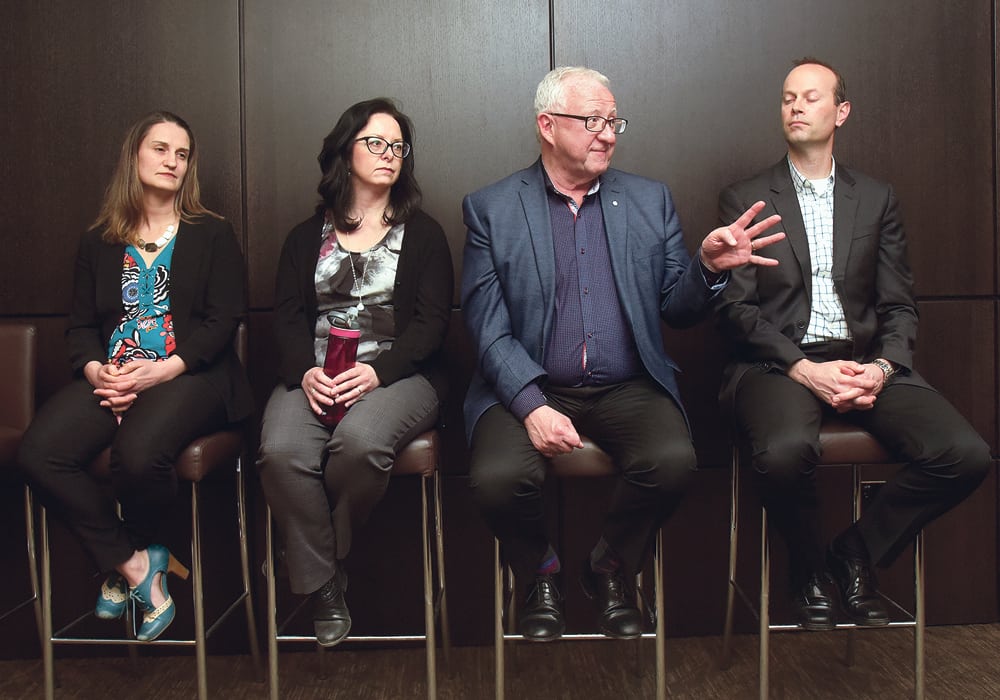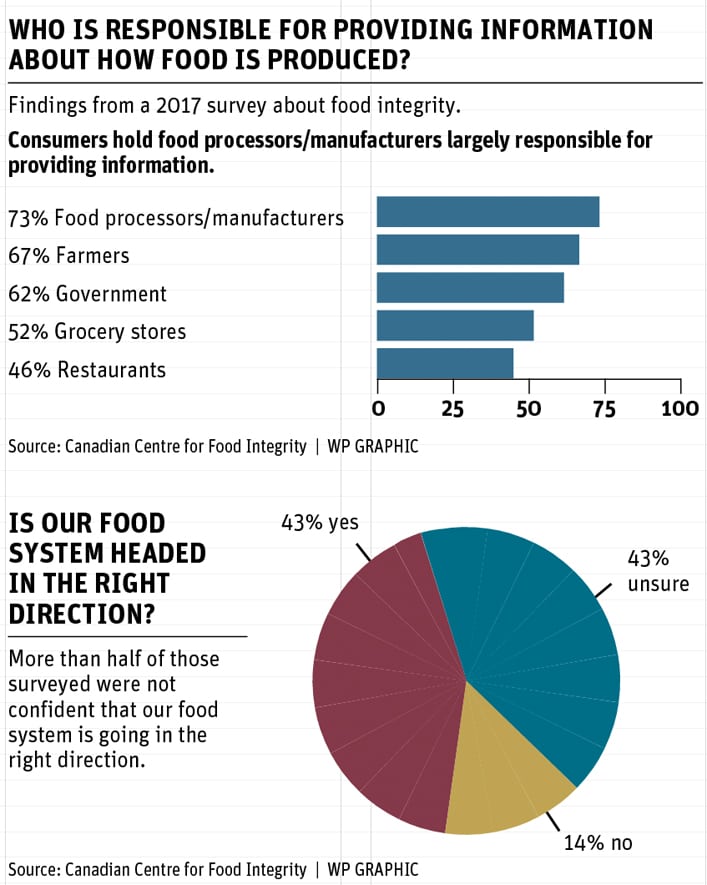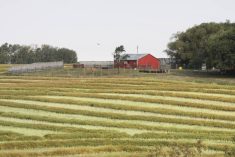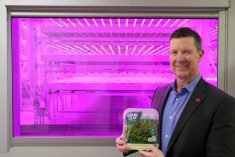Farmers are urged to share their authentic stories and participate in Canada’s annual agriculture day
Building public trust is key to modern agriculture and the industry must work together to achieve that trust, said Saskatchewan advocacy groups.
“It’s up to everyone in the industry to do something,” said Debbie Bailey, with the organization Agriculture More Than Ever at Farm Credit Canada.
“I used to wonder why somebody didn’t do something. Then I realized I am somebody,” she quoted from an unknown source.
Bailey was one of five people who participated in a panel discussion during a recent event organized by Ag-West Bio in Saskatoon.
Read Also

Nutritious pork packed with vitamins, essential minerals
Recipes for pork
As part of her role at FCC, Bailey engages with many associations and industry influencers to promote partnership opportunities in Canadian agriculture.
“We see ourselves as a connector and collaborator. We want to make sure that we’re all coming together and we’re not there to reinvent the wheel,” she said.
She offered three main areas that advocacy groups and individuals could focus on to help build public trust in the industry:
- They should continue to talk about food by sharing authentic stories.
- They must become involved with Canada’s annual agriculture day Feb. 12 to share individual messages with consumer audiences.
- They should become passionate advocates for agriculture and seek partnerships.
Krystral Aulie, agriculture awareness manager with the Saskatchewan Ministry of Agriculture, echoed several points necessary to achieve a sustainable food sector that is also trusted by the public. She said ag industry players must make sure the sector is doing the right things and they must be able to prove it or have a trusted assurance system.
She said the industry also must build awareness about what it is doing and why.
Clinton Monchuk of Farm and Food Care Saskatchewan said consumer perceptions, whether true or not, affect public policy.
“What we’re trying to do is make sure consumers understand truly what farmers are doing, the benefits to the land, the science behind it. But we need to do it on a shared-value basis,” he said.
“That’s where I think we’ve done a lot of focusing in the past on science and we need to talk about how we’re growing food, not only for others in the world or our country, but for our own families. And that’s what we need to get out to consumers.”
He cited the Chef’s Series held during the Taste of Saskatchewan Festival in Saskatoon that featured Saskatchewan-grown food products. Urban visitors to the event often take the opportunity after cooking demonstrations to talk directly to farmers about how different foods are specifically grown.
Sara Shymko from Ag in the Classroom, Saskatchewan said understanding what society thinks is important because it will affect the science that is available.
“I would say to a farmer is; ‘it’s not an island that you farm on and everything that you’re doing, it really is a glass house and people can look in,’” she said.
She said it’s important that producers become more active in a positive discussion about agriculture, particularly around shared values.
“Talk about what you’re doing and how that’s the right thing and caring what the public thinks, who maybe aren’t very knowledgeable about agriculture. They have the same values as you do as a farmer and so you’re growing food that you feel is safe, that you can feed your family. They want to know the food that they’re giving to their kids is safe,” she said.
She pointed out some risks that could impede the industry.
“The risks are a safe product, like Roundup, gets banned and then you no longer have the option to use that. The risk is that technologies that are available will no longer be available, so you won’t be able to farm the way you want to farm,” she said.
Wilf Keller of Ag-West Bio, said it’s easy to see on social media interactions how things can easily go off track.
“The people who had concerns and the activists who were negative about it got the upper hand, so to speak, in terms of getting the public on side with their view, and we don’t want that to happen on an ongoing basis.”
Kim McConnell pointed out that other industries, such as forestry have been investing in trust building for years.
Their advice is to take it seriously, work as a total food industry and get moving on communicating with consumers.
Saskatchewan leads the rest of the country as a model for bringing the “trust framework” together, which are the building blocks to advance public trust, he said.
“I think it’s the Saskatchewan system, from producers to farm associations, school programs to the province, they said we should do this together and we’re doing that,” he said.
“If you’re not at the table you may be on the menu.”



















